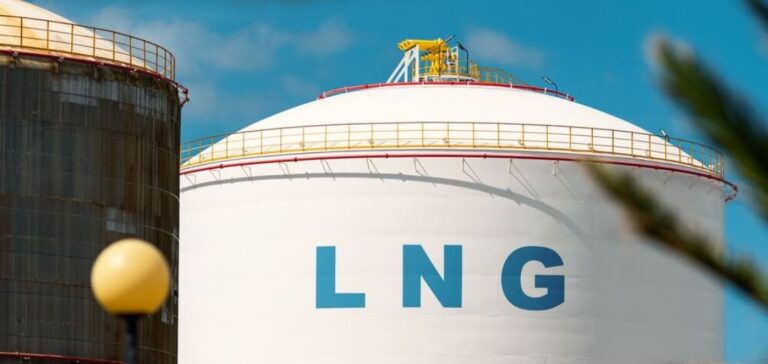Zhejiang Energy Group, controlled by the Chinese government of Zhejiang, received the first cargo of liquefied natural gas (LNG) at its new 3 million ton/year terminal in Wenzhou, in the city of Wenzhou on the east coast, on August 7.
Zhejiang Energy’s Wenzhou LNG Terminal begins operations
A company official told S&P Global Commodity Insights on August 8: “The LNG carrier YARI LNG, carrying around 68,047 tonnes or 154,000 cubic meters of LNG from Indonesia, arrived at Zhejiang Energy’s Wenzhou LNG terminal at noon on August 7, marking the start of operations at this new LNG terminal, the Zhejiang Port and Shipping Management Center.”
This is the second LNG terminal to be commissioned in China in 2023, and the 26th LNG terminal in the country. Earlier, China’s Suntien Green Energy began operating its 5 million ton/year Caofeidian LNG terminal in the city of Tangshan, in the north of China’s Hebei province, on June 18.
Start-up of the Wenzhou LNG terminal has been delayed by government formalities and typhoons. Zhejiang Energy had originally planned to start operating the Wenzhou LNG terminal at the beginning of July. Several typhoons have hit China since July.
Typhoons Disrupt Shipping Terminal Services in East China
Typhoon Talim made landfall in China’s Guangdong province on July 17, then typhoon Doksuri hit China’s Fujian province on July 28, according to weather reports. After that, shipping terminal services in eastern China were again disrupted by Typhoon Kanu last week, according to market sources. The LNG cargo for the commissioning was supplied by state-owned PetroChina, and the vessel had been in waters near Wenzhou for some time, market sources said.
“The LNG cargo has been exchanged from PetroChina, and we will send them back with our forward contract LNG cargo,” said another company source.
Zhejiang Energy and ExxonMobil signed a long-term LNG sales and purchase agreement in April 2019 for the supply of 1 million tons/year of LNG over a 20-year period. Term contract delivery has been underway since October 2022, at around one cargo per month, and Zhejiang Energy has mainly received its term contract volumes via ENN’s Zhoushan LNG terminal and CNOOC’s Ningbo LNG terminal previously, according to the source.
“The Wenzhou LNG terminal will enter the test phase after receiving the first LNG cargo, and we will formulate our LNG purchase and import plans based on actual market conditions,” the source noted.
In addition to the forward contract signed with ExxonMobil. Zhejiang Energy’s subsidiary Zhejiang Energy Natural Gas and Novatek Gas & Power Asia have also signed a long-term 15-year contract for the purchase of one million tonnes/year of Arctic LNG 2 in January 2022. LNG cargoes under this contract are expected to start being delivered from the third quarter of this year, further increasing Zhejiang Energy’s natural gas supply capacity, the source added.
Energy expansion: Zhejiang Energy launches its Wenzhou LNG terminal
As the fourth LNG terminal in Zhejiang province, the Wenzhou LNG terminal began construction on September 18, 2021, was completed on February 20, 2023 and passed inspection on April 13, according to the Zhejiang Port and Shipping Management Center.
The project has an LNG receiving capacity of 3 million tons/year and an LNG storage capacity of 1.08 Bcf, including a quay capable of receiving LNG carriers from 30000 to 266000 m3 and four LNG storage tanks with a capacity of 200,000 cu m each, Zhejiang provincial government data showed earlier.
Zhejiang Energy is a major energy supplier in Zhejiang province, mainly engaged in power construction, natural gas development and utilization, coal circulation and energy services, according to information published on the company’s official website. Zhejiang Energy has a provincial pipeline network of more than 1,800 kilometers, 72 provincial-level natural gas stations and 27 city gas companies, which supply more than 11 Mrb/year of natural gas, accounting for more than 81% of total natural gas consumption in Zhejiang province, the company said.






















